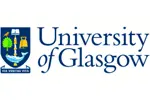We're moving! This site will be relocating to goingto.university in 2026. Please update your bookmarks to the new address.


| The award | How you will study | Study duration | Course start | Domestic course fees | International course fees |
|---|---|---|---|---|---|
| BSc (Hons) | Full-time | 4 years | September | - | - |
Contact University of Glasgow to find course entry requirements.
Below are some suggested courses at other providers that you may also be interested in:
Power, Publics and Engagement Master Degree
Erasmus School of Social and Behavioural Sciences (ESSB), Erasmus University Rotterdam
Find out moreManagement (Theatre and Screen) BA (Hons)
The Liverpool Institute for Performing Arts (LIPA)
Find out moreData Science for Econometrics Master
Erasmus School of Economics, Erasmus University Rotterdam
Find out moreMarketing Management - Digital Business Concepts Bachelor Degree
Fontys Economy Tilburg
Find out moreIf you do not meet the entry requirements for this course then consider one of these courses from another institution:
There are 654 other courses listed from University of Glasgow. A selection of these are displayed below:
Join the StudyLink email list and never miss a chance to turn your study abroad dreams into reality!
